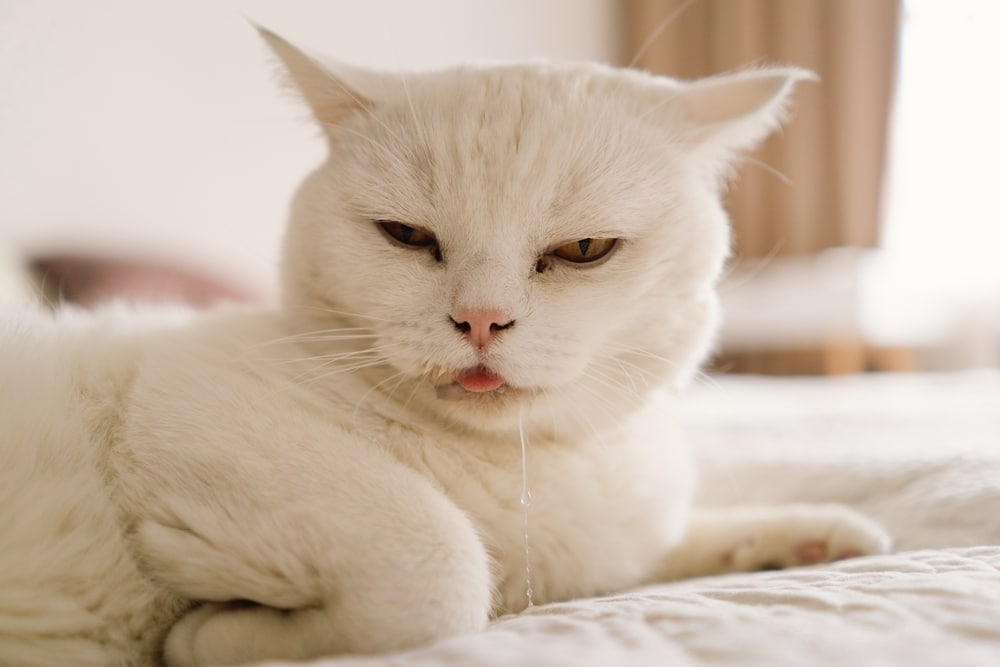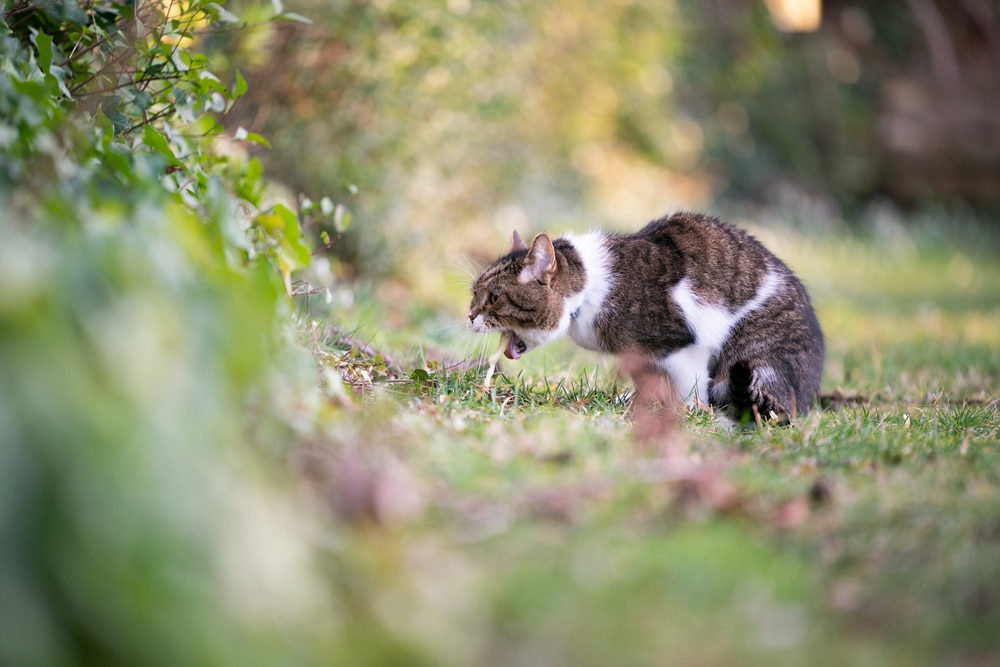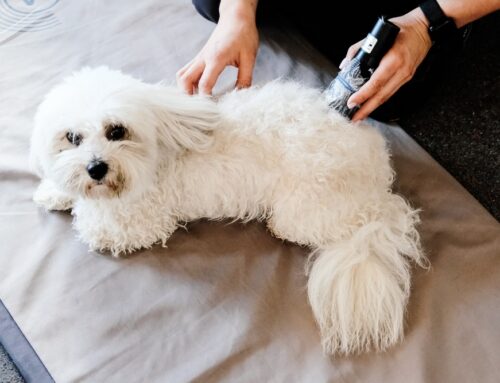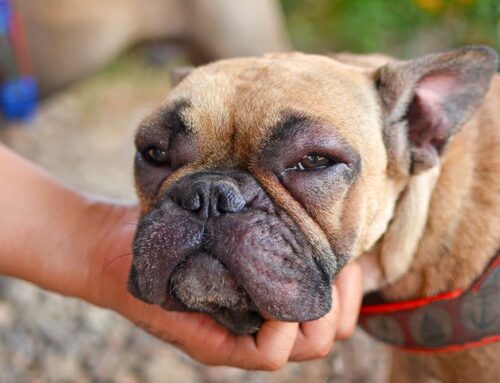Is My Cat’s Vomiting Serious? A Complete Guide for Concerned Owners
At MountainView Veterinary Hospital in Denville, we see plenty of “uh-oh” moments that begin with the sound of retching on the rug. An occasional hairball is part of normal feline life, yet frequent, forceful, or unusual vomiting can signal trouble brewing beneath the surface. Below you will learn why cats vomit, when to seek help, and how proactive care keeps nausea from returning.
Understanding Why Cats Vomit
Hairballs: The Classic Culprit
During grooming, a cat’s barbed tongue lifts dead hair, which is swallowed. Most strands pass harmlessly, but some tangle into a slick clump that must be expelled. A hairball every few weeks is ordinary. More than one per week, coughing fits without producing a mass, or hairballs mixed with food suggest over-grooming, stress, or digestive disease.
Diet and Eating Habits
Felines thrive on consistency. Abruptly switching foods, feeding table scraps, or offering rich treats can upset the stomach. Speed eaters may regurgitate undigested kibble minutes after a meal. Spreading the daily ration into multiple small feedings and using puzzle bowls helps slow ingestion and reduce vomiting episodes.
Foreign Objects
Cats explore with their mouths. Ribbon, sewing thread, rubber bands, and even holiday tinsel can lodge in the intestines. Along with repeated vomiting, you might notice lethargy, abdominal pain, or a “string” under the tongue. Gastrointestinal blockages are emergencies; immediate surgery is often lifesaving.
Parasites and Infections
Roundworms, giardia, and viral or bacterial infections inflame the gut. Kittens are especially vulnerable, while adult cats pick up parasites from hunting or contaminated soil. Routine fecal checks during wellness visits catch these invaders before they wreak havoc.
Chronic Disease Triggers
Persistent vomiting can be the first—or only—sign of serious internal illness:
| Condition | Red-Flag Clues | Learn More |
| Chronic Kidney Disease | Weight loss, increased thirst, ammonia breath | CKD in cats |
| Hyperthyroidism | Ravenous appetite, restless behavior | AAHA hyperthyroid guidelines |
| Hepatic Lipidosis | Sudden appetite loss in an overweight cat | Feline hepatic lipidosis |
| Pancreatitis | Hunched posture, diarrhea | Pancreatitis overview |
Early laboratory testing lets us manage these disorders before irreversible damage occurs.
Toxic Exposures
Lilies, ibuprofen and tylenol, household cleaners, and even some essential oils are poisonous to cats. If you suspect ingestion, call us and consult ASPCA Poison Control while arranging urgent care.
When to Schedule a Veterinary Visit
Contact MountainView if your cat:
- Vomits more than twice in 24 hours
- Brings up blood, coffee-ground material, or bile repeatedly
- Shows belly pain, bloating, or crouches with front legs lowered
- Refuses food or water for more than 24 hours
- Develops concurrent diarrhea, drooling, or weight loss
- Seems dull, dehydrated, or unusually aggressive when handled
Prompt evaluation prevents dehydration, electrolyte imbalances, and progression of any underlying disease.
Our Low-Stress Diagnostic Approach
Feline-Friendly Handling
As a Gold-Certified Cat Friendly Practice, we use pheromone-infused towels, quiet exam rooms, and gentle touch to minimize anxiety. Reducing stress not only protects the human-animal bond but also yields more accurate exam findings.
Step-by-Step Testing
- Comprehensive exam to palpate the abdomen, check hydration, and inspect the mouth
- Blood and urine panels to measure kidney, liver, and thyroid function
- Fecal analysis to detect parasites or bacteria
- Digital X-ray or abdominal ultrasound to search for foreign objects, masses, or organ changes
- Endoscopy or exploratory surgery when imaging is inconclusive yet symptoms persist
Our in-house lab provides same-day results, sparing your cat lengthy fasting and repeat visits.
Tailored Treatment Plans
- Fluid therapy and injectable anti-nausea medication for rapid relief
- Prescription diets designed to soothe sensitive stomachs or manage kidney disease
- Deworming or antibiotics when parasites or infections are identified
- Surgical removal of obstructive objects or tumors
- Long-term disease management with renal supplements, thyroid medication, or liver support protocols
- Complementary care such as acupuncture or laser therapy, discussed during alternative medicine consultations
Each plan includes home-care instructions and check-in calls to track progress.
Prevention: The Everyday Game Changer
Encourage Natural Behaviors
Boredom can lead to over-grooming and stress vomiting. Vertical scratching posts, window perches, and food puzzles satisfy predatory instincts and slow eating speed. Explore these enrichment ideas in our guide to helping cats express natural behaviors.
Feed Smart
- Keep diets consistent; transition over 7–10 days when switching foods
- Choose high-quality, life-stage formulas with digestive fiber
- Split daily calories into multiple mini meals
- Provide fresh water in wide, shallow bowls to protect whiskers
Groom and Protect
Daily brushing for long-haired breeds limits loose fur. Monthly broad-spectrum parasite prevention and annual fecal tests keep worms at bay.

Schedule Routine Wellness
Semi-annual exams catch subtle weight changes, dental issues, and metabolic shifts before vomiting starts. Learn how regular wellness care adds healthy years to feline lives.
Why Denville Cat Parents Trust MountainView
- Gentle handling philosophy that honors feline sensitivities
- Complete on-site services—diagnostics, pharmacy, dentistry, surgery, and integrative therapies
- Transparent communication with printed treatment estimates and 24-hour phone support
- Passionate team dedicated to protecting the precious bond you share with your pet
Need Help Now? We’re Here
Vomiting may be common, but it is never something to ignore. If hairballs become frequent, meals rebound, or your intuition says “this is not right,” trust that feeling.
Call MountainView Veterinary Hospital at (973) 983-0500 or request an appointment online. We will uncover the cause, calm the tummy, and get your cat purring comfortably again—because nothing less will do.









Leave A Comment